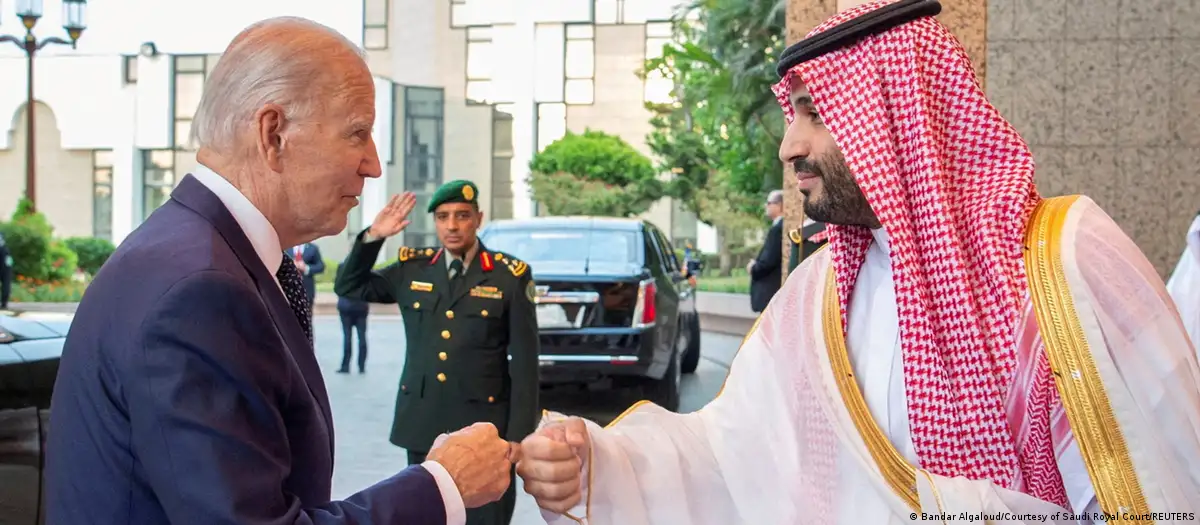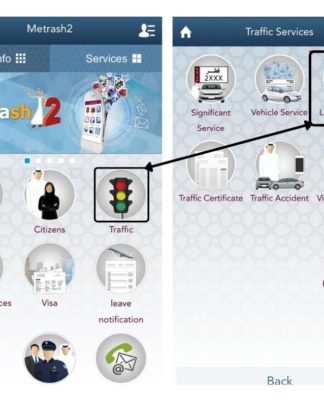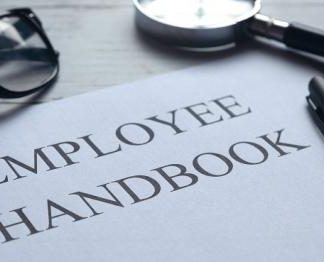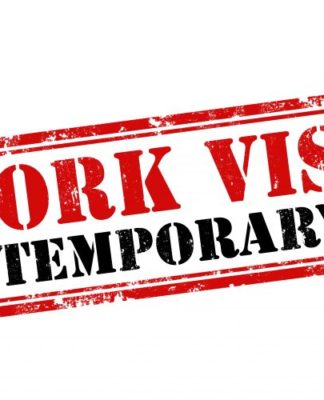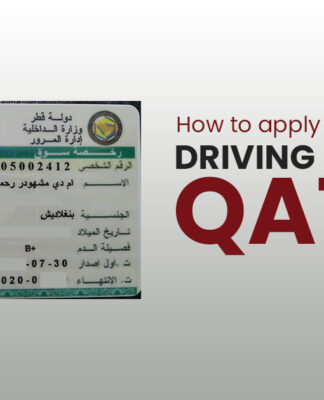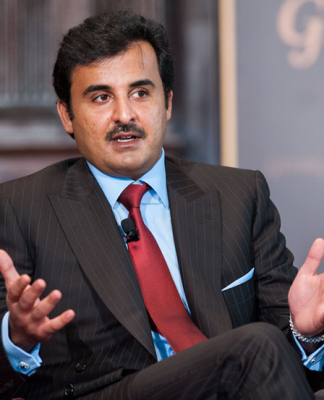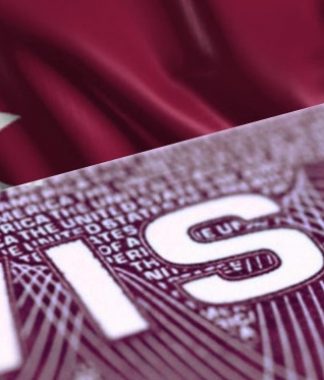POLITICSSAUDI ARABIA
Saudi-Israeli deal: What would it mean for the Middle East?
Jennifer Holleis
09/26/2023September 26, 2023
Despite ambitious rhetoric from all sides, few experts believe that Saudi Arabia and Israel will in fact fix their relationship. But what are the wider implications?
https://p.dw.com/p/4WpPH
Saudi Crown Prince Mohammed bin Salman fist bumps US President Joe Biden
Would US President Joe Biden be the biggest winner if there was a deal?Image: Bandar Algaloud/Courtesy of Saudi Royal Court/REUTERS
After months of US-brokered negotiations behind closed doors, the leaders of Saudi Arabia and Israel say they are optimistic about the unprecedented rapprochement.
Last week, Saudi Arabia’s crown prince and de facto leader Mohammed bin Salman confirmed that Saudi Arabia and Israel got closer “every day” and that a pact would be the “the biggest historical deal since the Cold War ” in an interview with US broadcaster Fox News.
Israel’s Prime Minister Benjamin Netanyahu even described the negotiations as being “at the cusp of a deal which would be a quantum leap for the region” last Friday at the United Nations General Assembly (UNGA) in New York.
However, the reality on the ground is more complex and there are still plenty of issues that would need to be resolved first.
Saudi Arabia keen on innovation and security
The autocratic kingdom under the rule of Mohammed bin Salman has improved ties with Qatar in 2021, established relations with former arch enemy Iran earlier this year and is keen to exit the costly and bloody war in Yemen against the Iran-backed Houthi rebels.
All these steps and aspirations are in line with Saudi Arabia’s ‘Vision 2030,’ an economic and social overhaul that seeks to modernize the oil-rich country by shifting away from oil as major income source, and to focus on renewable energies, non-religious tourism and innovation instead.
For this, Israel could come in handy as it is a powerhouse in the technology industry and also shares Iran as a common enemy with Saudi Arabia.
Experts, however, see the US role in the Saudi-Israeli negotiations as the key driver. “The Saudi-Israel rapprochement is at least a trilateral deal that includes the United States,” Peter Lintl, researcher at the German Institute for International and Security Affairs, told DW.
“In return for normalizing ties with Israel, the Saudis demand their own civilian nuclear program and US security guarantees, a quasi-NATO light from the USA,” Lintl said.
Following the 2018 murder of Saudi political dissident Jamal Khashoggi, Saudi Arabia will also be keen on mending ties with the US.
For now though, Sebastian Sons, senior researcher for the German-based think tank Carpo, doubts that Saudi Arabia and Israel are likely to sign a treaty in the near future. “An official normalization is not really needed at the moment, as Saudi Arabia is already cooperating quite closely with the Israelis in many areas,” Sons said.
The Saudi leader has already dialed down some other longstanding demands, suggesting in a recent TV interview that the new deal [with Israel] would “give the Palestinian their needs and ensure a good life for them.”
This marks a stark turnaround from his support of the “Arab Peace Initiative” in 2002 — which offered Israel security and relations with 57 Arab and Muslim countries in exchange for its withdrawal from the occupied Palestinian territories and the creation of an independent Palestinian state.
Meanwhile, on Tuesday, a Saudi delegation arrived in the occupied West Bank for talks with Palestinian President Mahmoud Abbas for the first time in 30 years.
Saudi Crown Prince Mohammed bin Salman (r) shaking hands with Palestinian President Mahmud Abbas Saudi Crown Prince Mohammed bin Salman (r) shaking hands with Palestinian President Mahmud Abbas
For Saudi Arabia, the Palestinian quest for an independent state, has had utter importance for a long time.Image: Bandar Al Jaloud/Saudi Royal Palace/AFP
Israeli’s Netanyahu seeking political legacy
“The ultimate goal of the Israeli side is to enter into a peace agreement with Saudi Arabia as the most important Arab state and its enormous symbolic impact in the Arab world,” Lintl told DW, adding that such a deal “shows that normalization does not have to lead through the Palestinians, but that the Palestinians are no longer a major obstacle to a peace agreement with the other Arab states.”
Meanwhile, protest is not only expected from the Palestinian side but also from within Israel’s right-wing government. The strong settlement faction is unlikely to accept the conditions that come with the normalization deal — such as putting parts of the West Bank territories that are now controlled by Israel under Palestinian control.
“Any previous Israeli government could have agreed to many of these demands,” analyst Ben Caspit wrote in an article for the publication al-Monitor this week. Today, however, these [conditions] are all complete non-starters for finance minister, Bezalel Smotrich, and for the national security minister, Itamar Ben-Gvir, he added.
For Netanyahu though, signing a peace deal with Saudi Arabia would be the highlight of his political legacy and distract from problems on the ground. For months, Netanyahu has been under massive domestic pressure over his proposed judicial reform. Netanyahu is also facing corruption charges and hefty opposition from within the Israeli parliament, the Knesset.
“If Netanyahu’s government makes concessions to the Palestinians, part of the Israeli population could call for new elections. Netanyahu could then only push through this deal with another government,” Lintl said.
US domestic election campaigning
While there is no doubt that the US supports Israel’s stabilization in the region, President Joe Biden would also benefit from a Saudi-Israel peace deal ahead of the upcoming US elections.
“Probably the strongest internal political motivation has Joe Biden, because a peace agreement between Israel and Saudi Arabia is enormously prestigious and would outshine the Abraham agreements with the United Arab Emirates, Morocco, Bahrain and Sudan, which have come about under the former US administration under Donald Trump in 2020,” Peter Lintl said.
As a side effect, the US would also regain influence as Saudi Arabia’s ally and stem growing efforts by China to gain a foothold in the Middle East.
However, Sebastian Sons remains cautious. “Whether the US is able and willing to fulfill the Saudi demands remains to be seen. Another question is what happens in case Biden won’t be reelected next year?”
Kersten Knipp contributed to this article.
Edited by: Andreas Illmer
Jennifer HolleisJennifer Holleis
Jennifer Holleis Jennifer Holleis is an editor and commentator focusing on the Middle East and North Africa.














